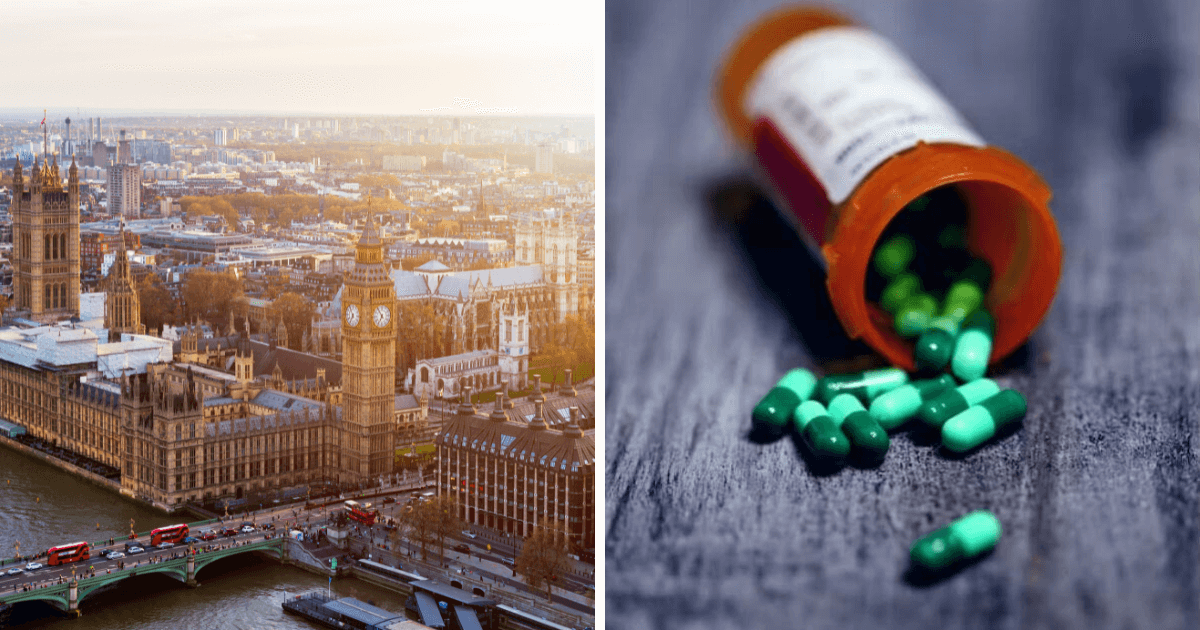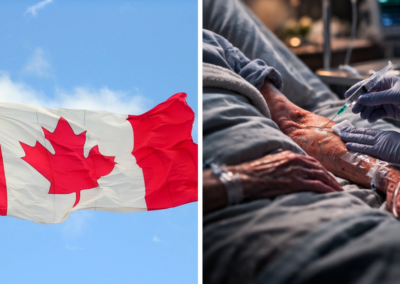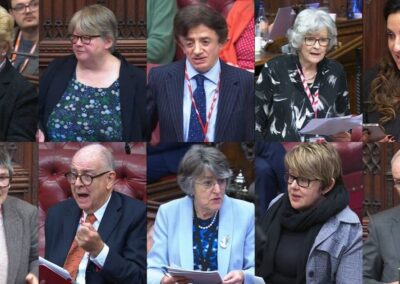Despite substantial changes to the assisted suicide Bill since it was tabled last year, a House of Lords select committee has chosen not to accept expert written evidence aside from a select few invited witnesses.
Following the second day of Second Reading of the Terminally Ill Adults (End of Life) Bill in the House of Lords, Peers approved the establishment of a dedicated select committee to further scrutinise the Bill’s proposals, with the commencement of the Bill’s formal Committee Stage being delayed until the select committee has reported.
Initially branded a “wrecking amendment” and dismissed by Lord Falconer as not “workable”, the addition of a select committee was eventually accepted. Now, however, it has been reported that the select committee has said it “is not seeking or accepting written evidence other than from invited witnesses”, citing the “short timeframe” for the inquiry and “limited scope” of the committee as reasons for this.
Available information indicates that the committee is set to hear oral evidence from five or six witnesses during each session. This would limit expert testimony on this Bill to “a select handful of people”, according to reports.
According to normal procedure, “select committees rely very largely on written and oral evidence”. The Spectator has pointed out that in usual circumstances “the committee would accept evidence from the public alongside expert testimony which would help scrutinise the legislation”. For the assisted suicide Bill, however, this will not be the case.
“Absolutely crackers”
A number of high-profile politicians from across the political spectrum and commentators have been highly critical of the decision to limit evidence-taking to oral sessions and written evidence only from those same invited witnesses.
Former Director of Legislative Affairs at 10 Downing Street, Nikki da Costa, asked whether there was any precedent for this deliberate restriction of whom the Committee would hear from.
Following the announcement, Labour MP Jess Asato said “It seems very odd to have a Committee which isn’t able to accept written evidence. The Bill has changed since it was first proposed and how can a Committee on a Bill of this magnitude come to a reasoned conclusion on just a few sessions of oral evidence?”.
“Feels like shenanigans” she added.
Antonia Bance MP said that the assisted suicide Bill has “changed a fair bit (!!) since written evidence to the Commons bill committee” and suggested it was “absolutely crackers” for the select committee not to accept evidence from other witnesses.
Lord Frost also lamented the fact that the select committee has chosen not to receive written evidence. “It’s a great pity given the changes in the Bill since it came to the Commons and given how much discussion is yet to happen in the Lords after the Select Committee’s work is done”.
Labour MP Naz Shah criticised the Bill, saying it had “changed so radically since the committee, of which I was a member of which considered it”, and that the idea that the House of Lords Committee “shouldn’t accept new written evidence is utterly [ludicrous]”.
Reform MP Danny Kruger said it was “a very bad sign” that the House of Lords select committee was refusing evidence, the Bill having changed substantially since it was scrutinised at the House of Commons Committee stage.
Graham Stuart MP said that the refusal to accept evidence was “bizarre (and chilling)”, and that the decision not to do so “should be challenged and reversed”, while fellow Conservative MP Rebecca Paul said it was “concerning”.
Liberal Democrat MP Tim Farron said “This is deeply troubling. Why would the [House of Lords] committee on assisted dying refuse to accept evidence except from the invited few?”, stating that it “looks like a transparent attempt to limit scrutiny and debate”.
The select committee met today for its first Oral evidence session, and will meet again tomorrow (23 October), as well as for four further evidence sessions at the end of the month and into November.
Spokesperson for Right To Life UK, Catherine Robinson, said “The assisted suicide Bill has changed substantially since it was first introduced. Perhaps most significantly, the flagship High Court Judge safeguard has been dropped in favour of ‘death panels’. It is bordering on scandalous that only a select few handpicked experts will be given the opportunity to comment on this and other matters within the Bill”.












